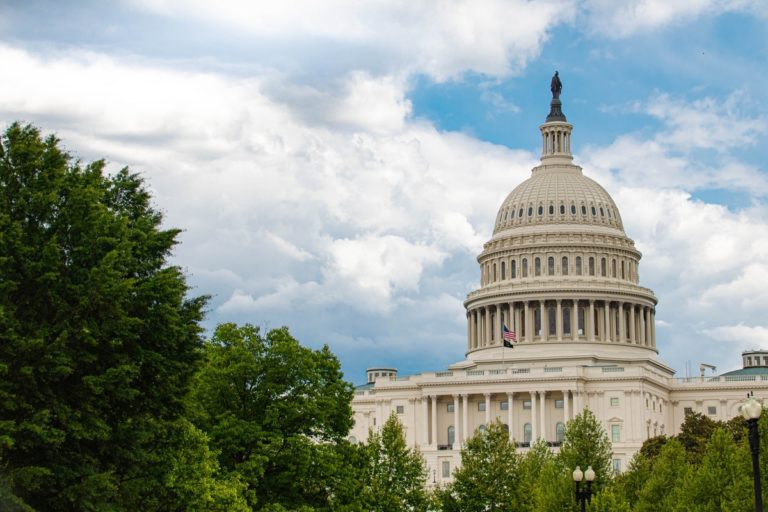When it comes to your retirement plan, are you using all the tools in your arsenal? If your income allows you to max out your 401(k) and IRA contributions, you’re probably on the road to a comfortable retirement free from financial stress. If you’ve taken the step of saving in taxable accounts, too, you’re even more secure. Still, you may be missing out on an incredibly tax-efficient savings vehicle. If you truly want to bolster your retirement plan, it’s time to look into a health savings account (HSA) – the only vehicle with an option for “triple-tax savings.”
What does this mean? Well, you can contribute pre-tax dollars to your HSA, pay no taxes on earnings, and withdraw money tax-free now or in retirement so long as it’s used for qualified medical expenses. Essentially, HSAs go to work for you in three significant ways, and they provide the ultimate tax efficiency that you can’t get anywhere else. Below we’ll review five ways you can strengthen your retirement plan by utilizing your HSA.
5 Ways Your Health Savings Account Can Strengthen Your Retirement Plan
1. Fully Utilize the Triple-Tax Advantage
Here’s an important note: In order to utilize an HSA and receive the triple-tax benefits, you must be enrolled in an HSA-eligible health insurance plan. It can be through your employer or through the private marketplace. These are high-deductible plans, so it’s helpful to use your HSA funds to cover your out-of-pocket costs in the present. If you can manage to pay those costs with personal savings instead, you can effectively super-charge your retirement savings by taking full advantage of your HSA and its triple-tax advantage for the future.
How is this possible? Unlike most flexible spending accounts, the money you contribute to your HSA can roll over from year to year. That means you can earn interest on it, plus you can take it with you if you happen to change employers or retire altogether. The contribution limits set by the IRS for 2022 are $3,650 for individual coverage and $7,300 for family coverage. If you’re 55 or older, you can also make a $1,000 catch-up contribution. If you want to optimize how your HSA is working for you, contribute the maximums and don’t withdraw any funds unless it’s a necessity. It’s much more advantageous to let your money grow until you retire.
2. Set Aside Funds Specifically for Health Care Expenses
The majority of retirees will face many health care expenses in the future. Even if you’re healthy right now, you’ll likely face a number of medical procedures, hospital bills, and prescription drug needs, and there is always the potential for home health care or nursing home costs.
None of us can predict if or when these types of expenses may hit or how much they’ll cost. This is why it’s a savvy move to build savings specifically to cover future health care expenses. Medicare will cover some of these costs once you turn 65 but this coverage is limited. What’s more, with estimates hovering around $295,000 for what the average couple will spend on health care in retirement, it will be necessary to plan ahead.
Funding your HSA means having an accessible bucket of money that you can use – tax-free – to cover your health care costs in retirement. (Note: not every expense will be a qualified medical expense, so be sure to check the IRS list.)
3. Invest Your HSA Contributions
Health care costs are continuing to increase, so while the estimate mentioned above is helpful for your planning, $295,000 may not fully cover your health care needs in retirement. Knowing this, it may be prudent to invest some or all of your HSA contributions. Once you reach the $1,000 threshold in your HSA, you can begin investing in mutual funds, stocks, and bonds. This potential for tax-free growth means strengthening your retirement savings even further and, as with any investment account, you can choose your level of risk. For example, you could match your HSA investment risk level with that of your overall portfolio, or you could choose to be more conservative in your HSA investment strategy.
4. Use Your Health Savings Account in Retirement
With your HSA, you’ll always have the option to use your funds to cover qualified medical expenses now and in the future. However, there are even more valuable ways you can use your HSA money once you retire:
-
Bridging to Medicare
Medicare eligibility begins at age 65, but many people retire before then. In that case, you may need help bridging the gap until you become eligible. Although you cannot typically use HSAs to pay private health insurance premiums, there are two exceptions: paying for an employer-sponsored health care plan under COBRA, and paying premiums while you are receiving unemployment compensation.
-
Paying Your Medicare Premiums
The IRS allows you to use your HSA to pay for your Medicare premiums for both Part B and Part D. However, you can’t use it to pay supplemental policy premiums.
-
Covering Long-Term Care Costs
Your HSA can also be used to fund a portion of the cost to buy a long-term care insurance policy. You can do this at any age, but the amount you’re able to use increases as you get older.
-
Paying for Non-Medical Expenses
Your 65th birthday is a milestone when it comes to your HSA. At this point, you can stop worrying about qualifying medical expenses and use your HSA dollars to pay for nonqualified expenses, too. (For example, you can buy the RV you’ve been dreaming of!) However, you’ll be required to pay state and federal taxes on those distributions.
5. Include Your HSA in Your Estate Plan
There’s always the possibility that you’ll get lucky and have lower than average medical expenses in retirement. Of course, it’s also possible that you won’t live as long as you hope to. In either case, you can leave your HSA funds to your heirs. The rules are complicated, so it’s important to consult with an estate planning attorney. However, there are three general categories to consider when you determine how your HSA assets are treated upon your passing:
-
Spouse as Designated Beneficiary
Your HSA will simply be treated as your spouse’s HSA after your death. The account will receive the same triple-tax-free benefits.
-
Spouse is NOT the Designated Beneficiary
In this case, the account will discontinue being a health savings account. Your beneficiary will pay taxes on the fair market value of the account in the year of your death.
-
Your Estate is the Beneficiary
In this scenario, the fair market value of your HSA will be included on your final income tax return. It will most likely become a probate asset, which could add time and complication. Still, if you don’t have a surviving spouse, you may decide to plan with tax-efficiency in mind. In that case, naming your estate the beneficiary could be the right option for you, especially if your estate is in a lower tax bracket than your intended beneficiary will be.
Are You Making the Most of Your HSA to Strengthen Your Retirement Plan?
You want to give yourself a comfortable retirement, so make sure you don’t overlook tools that could enhance your tax efficiency and your savings. Health Savings Accounts are a great option to fortify your retirement savings and they offer distinct advantages, most especially triple-tax-free treatment if you get strategic and optimize them.
If you’re unsure whether you’re getting the most out of your HSA, or you have other questions about your retirement plan, please contact us today. At Arbor Capital, we succeed when we help our clients meet their goals, and we provide the highest level of support along the way. Schedule your initial conversation with us today to learn more about our services.












